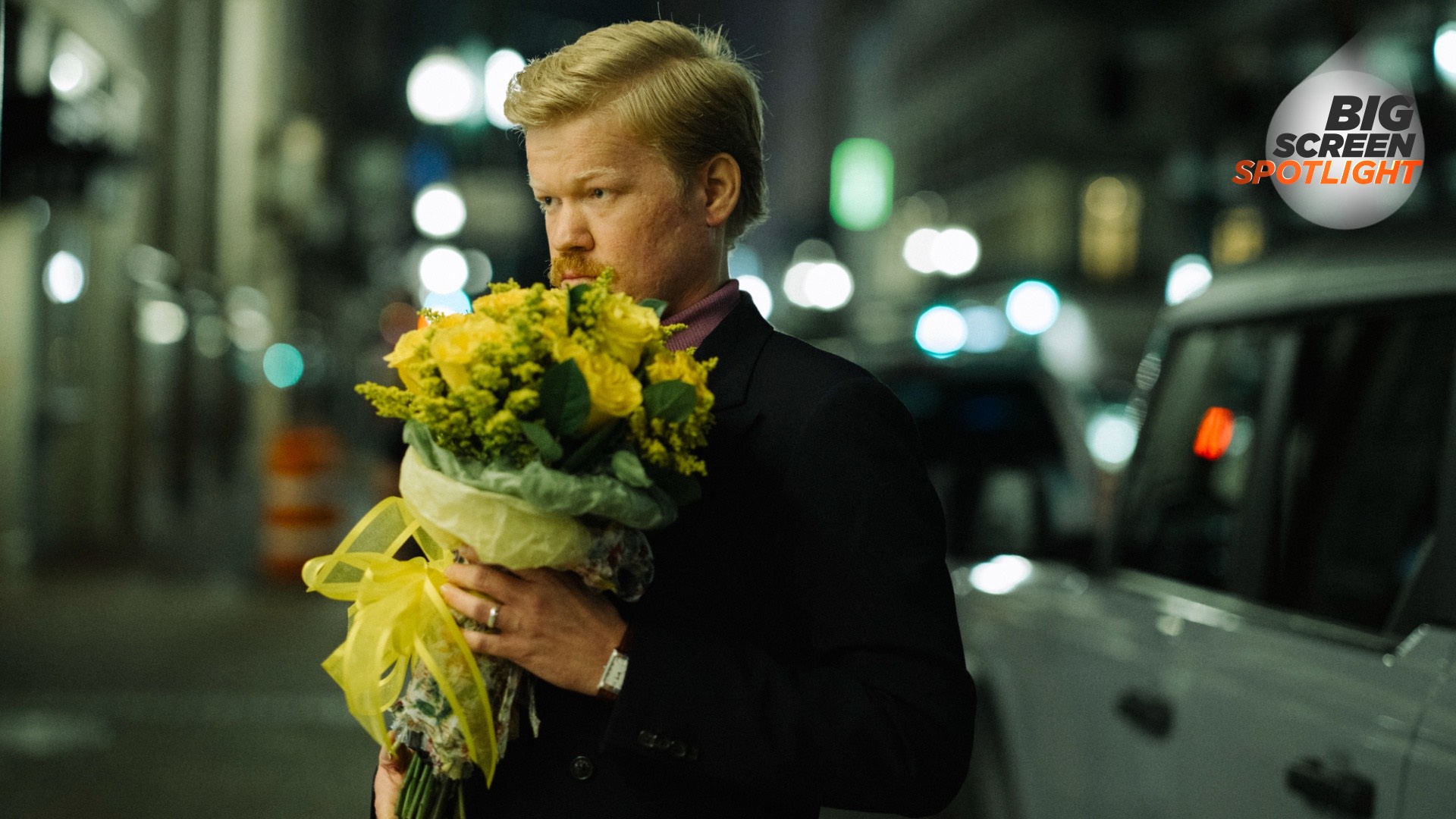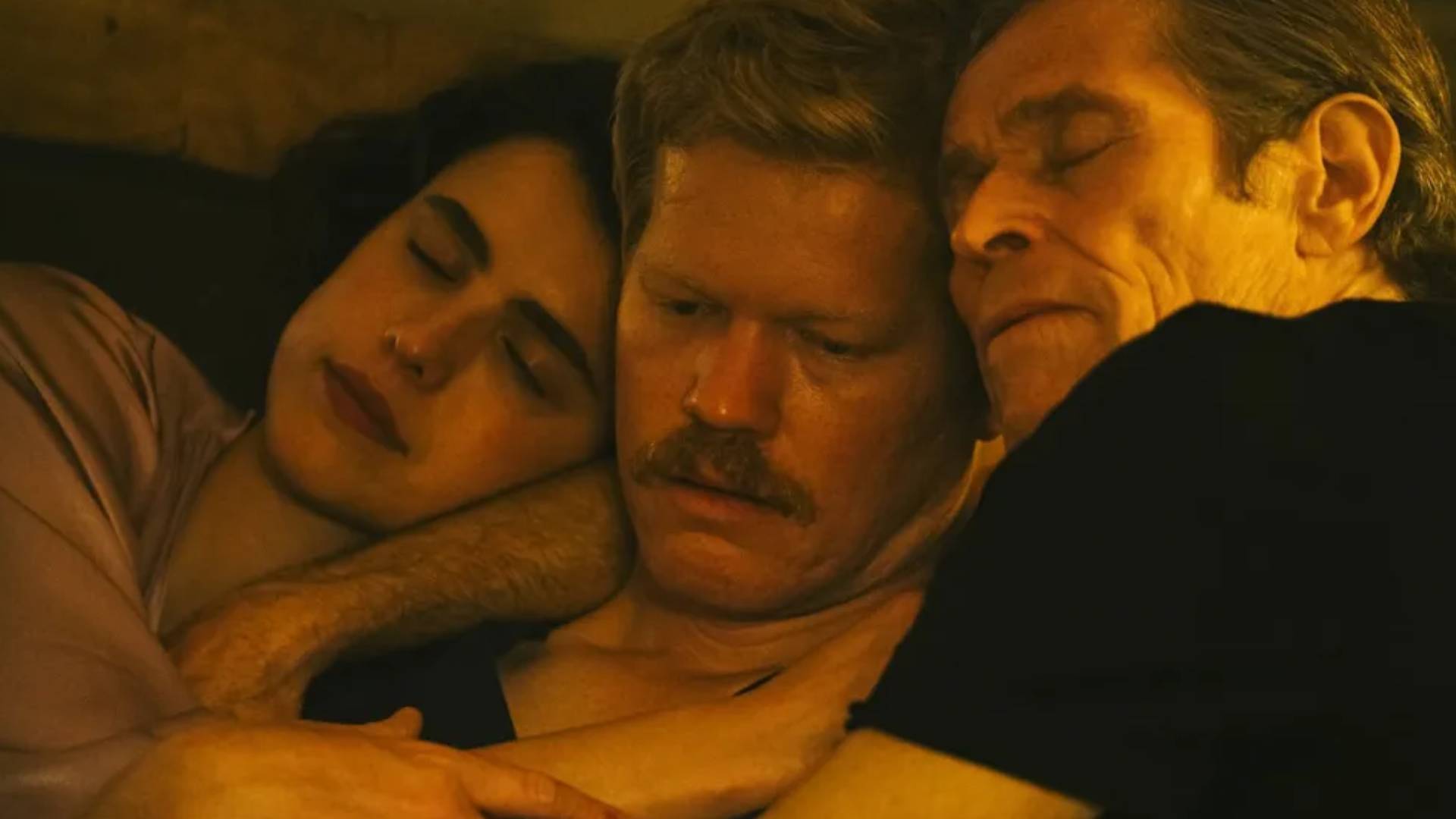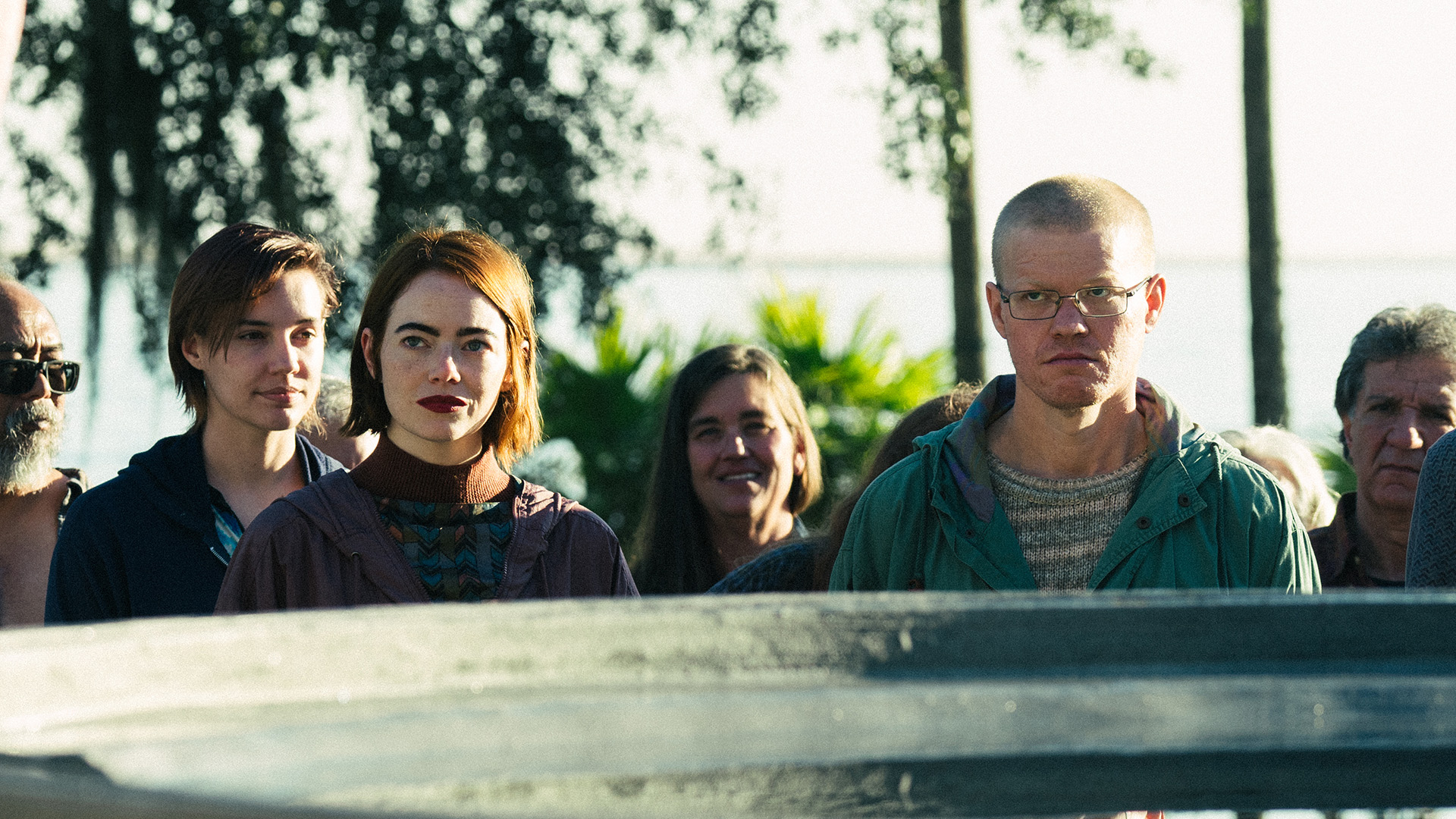
In Kinds of Kindness, the latest film from director Yorgos Lanthimos, people go to drastic lengths to please those they love. Blood, sweat, and tears are spilled in equal measure, but Lanthimos has a much more laid-back approach to the opinions of others. "People can do whatever they want with [the movie]: enjoy, trash it, whatever," the director tells GamesRadar+ and the Inside Total Film podcast when we sit down with him and actor Jesse Plemons over Zoom. "Like, it's all for you."
Lanthimos re-teamed with his Dogtooth, Alps, The Lobster, and The Killing of a Sacred Deer co-writer Efthimis Filippou to write Kinds of Kindness, so the director's latest movie eschews the whimsy and relative straightforwardness of 2023's Poor Things and 2018's The Favourite for the nastier, absurdist vibes of his earlier collaborations with Filippou.
A story in three parts

The movie sees the return of several Lanthimos project mainstays: Emma Stone, who's worked with the director on Poor Things, The Favourite, and a short film called Bleat, as well as her Poor Things co-stars Willem Dafoe and Margaret Qualley, and her The Favourite co-star Joe Alwyn, too. Multiple creatives were brought back behind the scenes, too, including Poor Things composer Jerskin Fendrix, who returns with an experimental, abrasive score that sets an uneasy tone and heightens the film's more ironic moments in equal measure.
"That's always the hope that there is some familial community feeling on the set, where everyone is striving for the same goal," first-time Lanthimos collaborator Plemons explains. "But this one even more so, I think, because it was such an ensemble and Yorgos also brings back a lot of the same brilliant crew members from film to film, not just in the acting department. So, even though this was my first time, that first day, I was just seeing all of them reuniting and even that, in itself, is kind of comforting, you know?"
Shining a light on the under-the-radar theatrical releases that you need to know about, with a new article every Friday
The film is a triptych, comprising of three seemingly unrelated stories in which the same cast members play a different character. In one, a man's dedication to his controlling boss is tested, in the next, a marriage teeters on a knife edge when a missing wife returns home, and, finally, a cult member seeks approval as she desperately searches for the 'chosen one'. Plemons plays a key, leading role in each tale, with his characters grappling with everything from cannibalism to resurrection.
While the three stories unfold in succession in the finished product, that wasn't always the case. "Actually, in the beginning, the three stories were separate. You wouldn't see them one after the other – they were all intertwined, you would follow them in parallel," Lanthimos tells us. "But I kept having this strong desire to have the same actors play a different part in each story, so we decided that that would work only if we separated them. When we separated those three stories, they also felt more solidly presented in that way."
Playing favorites

Lanthimos doesn't have a favorite segment and prefers to think of the movie as a whole rather than the sum of its parts, explaining, "[Writing] happens so gradually, and it took such a long time. Every time you find an idea, you're excited about it, then you develop it, then you get to your next idea. By the end of it, you've gone through so much time trying to figure it out, and you love it as a whole. There's a lot of effort that has gone into it to make it seem like one thing."
Plemons is a little more decisive, however. "There are aspects that I love in different ways about each of them," the actor adds. "I think because this felt so unique in terms of my experience as an actor and the material. Robert [his character in the film's first story, 'The Death of RMF'] was the first one that we shot and so after that first week, once I got a little more comfortable in the world, and a little more comfortable stepping off the ledge, so to speak, it became really exciting and exhilarating at times, because that was my introduction. You've done your preparation before, but you still feel like you're starting over each time."
The triptych was written "part by part", Lanthimos says, due to his and Filippou's busy schedules. "After we started writing the first story, we just wanted to try something different, with the form as well, to what we'd done before and we decided that we would like to include more than one story. So then it was a process of finding the other two. We decided – again, kind of randomly and abstractly – three would be a good number."
Power and control

With the creative process unfolding "randomly and abstractly", it may initially seem like that methodology bled into the stories themselves: only one, very minor, character is present in all three and the plot lines don't appear to have much in common. Thematically, though, there are threads that stretch across the two-and-three-quarter-hour runtime: power, control, devotion, desperation. "I think the process is one of adding observations and ideas and behaviors that you are interested in and wondering about, and putting it all together and seeing what happens," Lanthimos says. "It's almost like an experiment, where you have all these characters and situations, and it's like making music with all the sounds and then you're trying to make sense of it. But it's not necessarily logical or literal."

Tom Hardy is right: The Bikeriders isn’t your typical biker movie, and that’s the point
Both Lanthimos and Plemons like the idea that viewers can take what they want from the movie and there's no one "right" way of watching it, something that seemingly also filtered through to the film's set. "There was something while we were shooting, that the experience of going through it changes," Plemons adds. "I think it's really hard to fully shut out your own idea on an intellectual level or how you categorize it in your head."
Lanthimos continues, "We probably understand some of it after the fact, after talking to someone like you who says, 'There's this and this'. There was someone before that told us, 'There's kindness in the title, but there are no kindnesses.' It's interesting that someone doesn't see that at all when they're watching the film. So it's great, because that's why it's made the way it's made. You see so much of the person that's watching it in what they say, more than what the film is trying to say, because it is not trying to say anything singular or too specific. It's just so complex." He pauses for a moment, then laughs. "I hope it's complex."
Kinds of Kindness is out now in theaters. For more from Lanthimos and Plemons, listen to our full chat on this week's episode of the Inside Total Film podcast. And, for more on what else you should be watching at the cinema, be sure to check out the rest of our Big Screen Spotlight series.







